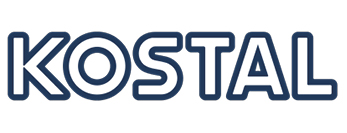The customer
Kostal is a 1-tier Automotive supplier and thus has to comply to certain process and security standards. Leopold Kostal GmbH & Co. KG, the parent company of the Kostal Group, is a globally active, independent family company with its headquarters in Lüdenscheid, which develops and produces electronic and mechatronic products. Around 20,000 employees work for the group of companies at 46 locations in 20 countries. Various industrial companies, in particular automobile manufacturers and their suppliers, as well as companies from the photovoltaics sector are among the customers.In order to comply to Automotive SPICE Level 3, Kostal was searching for a solution to fulfill the respective requirements‘ traceability obligations. They met several challenges with the existing tool chain and development process.
Customer advantage / customer benefit
At the end of the implementation Kostal successfully finalized the Automotive SPICE Level 3 assessment. Additionally, end users reported further benefits such as itemis ANALYZE gave insights into the project structure, namely the existing artifacts and their relations.In addition, it compared the existing data to the expected data. The expectations may e.g. be given in the form of a Traceability Information Model. the good usability of itemis ANALYZE, and the easy-to-use support for navigating from one development artifact to all dependent ones. Both of which led to a higher efficiency.
Kostal has fully rolled-out the solution and is currently investigating the possibility of using itemis ANALYZE in their non-automotive projects. itemis will further support Kostal with the implementation of additional sophisticated ad hoc metrics and role specific data analysis.
Kostal uses DOORS for requirements management. Previously they stored additional data related to architectural, design, or test artifacts as surrogates in DOORS in order to maintain the necessary traceability links. The resulting trace data was exported to a database and analyzed with SQL queries. This solution had several shortcomings: scalability issues with large projects, consistency issues because of redundant data, unstable and error prone tool integrations, as well as difficulties to analyze the exported trace data due to missing capabilities of SQL.
Approach and solution on the part of itemis
itemis ANALYZE also supports to add and aggregate additional data to the trace links. In order to make the trace data available for data analysis and reporting, all trace links are regularly exported in a continuous integration procedure to an existing DB Schema. itemis ANALYZE itself supports ad hoc analysis and metrics as well as role- and project-specific queries based on a powerful and easy to learn query language.
Implementation
After some market research Kostal finally decided to go with Itemis ANALYZE from itemis. Starting with a first proof of concept, itemis supported the successful implementation in several mass-production projects. The capability of itemis ANALYZE to store trace links in an invasive way allowed Kostal to use most of the development artifacts unchanged.
That was possible, because most artifacts already contained “foreign keys”. As a result, the implementation of the solution was very fast and without the usual obstructions occurring, if you are forced to change existing artifacts.



